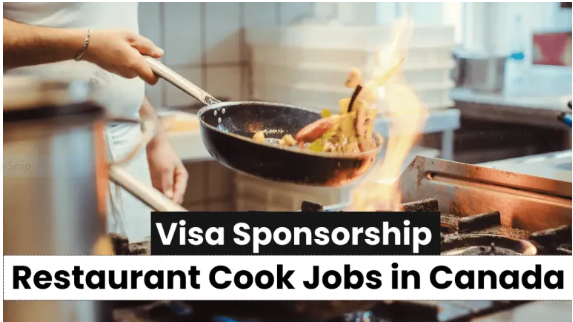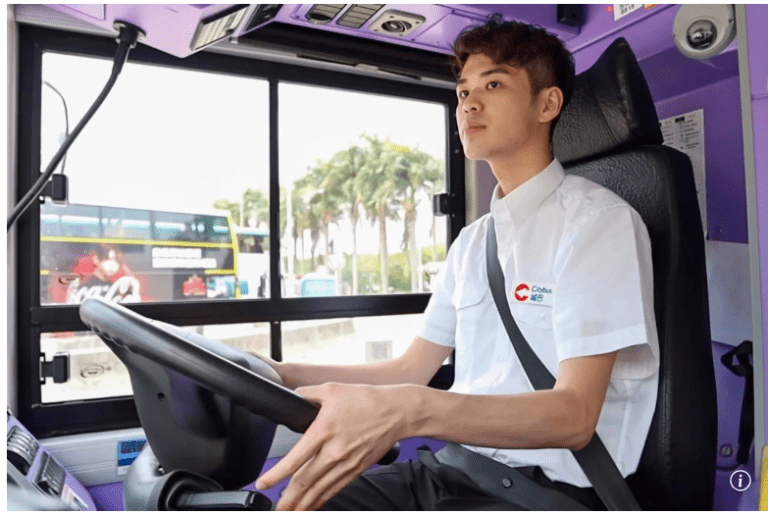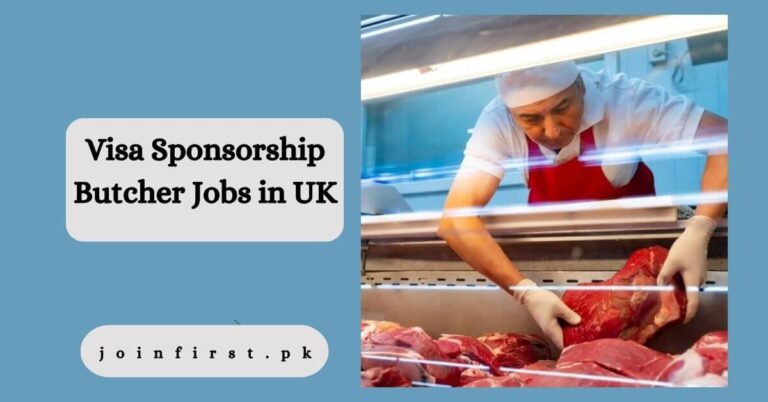
Outline
- Introduction
- Overview of the demand for restaurant cooks in Canada
- Importance of visa sponsorship for international applicants
- Why Canada Needs Restaurant Cooks
- Growth of the Canadian culinary industry
- Impact of immigration on the hospitality sector
- Benefits of Working as a Restaurant Cook in Canada
- Competitive salaries and benefits
- Opportunities for career advancement
- Quality of life and work-life balance
- Understanding Visa Sponsorship
- What is visa sponsorship?
- How does visa sponsorship work in Canada?
- Types of Visa Sponsorships Available
- Temporary Foreign Worker Program (TFWP)
- International Mobility Program (IMP)
- Provincial Nominee Programs (PNPs)
- Eligibility Criteria for Visa Sponsorship
- Required qualifications and experience
- Language proficiency requirements
- Health and character assessments
- Steps to Secure a Restaurant Cook Job with Visa Sponsorship
- Researching potential employers
- Preparing a strong resume and cover letter
- Navigating the job application process
- Top Cities in Canada for Restaurant Cook Jobs
- Toronto
- Vancouver
- Montreal
- Calgary
- Popular Canadian Restaurants Hiring International Cooks
- Chain restaurants
- Fine dining establishments
- Ethnic cuisine restaurants
- Challenges Faced by International Cooks in Canada
- Cultural and language barriers
- Adapting to Canadian culinary practices
- Legal and bureaucratic hurdles
- Success Stories of International Cooks in Canada
- Case studies of successful immigrants
- Testimonials from restaurant owners and managers
- Support Systems for International Workers
- Government programs and resources
- Community organizations and support networks
- Living in Canada: What to Expect
- Cost of living in major cities
- Canadian culture and lifestyle
- Weather and climate
- Tips for Adjusting to Life in Canada
- Building a social network
- Understanding Canadian customs and etiquette
- Finding accommodation and transportation
- Conclusion
- Summary of opportunities for restaurant cooks in Canada
- Encouragement for potential applicants
- FAQs
- What is the average salary for a restaurant cook in Canada?
- How long does the visa sponsorship process take?
- Can my family join me in Canada?
- Are there opportunities for permanent residency?
- What are the language requirements for working as a cook in Canada?
Restaurant Cook Jobs in Canada with Visa Sponsorship 2024
Introduction
Restaurant Cook Jobs in Canada with Visa Sponsorship 2024. Are you a culinary enthusiast dreaming of taking your cooking skills abroad? Canada might just be the perfect destination for you. The demand for restaurant cooks in Canada is on the rise, and with visa sponsorship opportunities available in 2024, there’s never been a better time to consider making the move. In this guide, we’ll explore everything you need to know about securing a restaurant cook job in Canada with visa sponsorship, from understanding the process to finding the right job and making a smooth transition.
Post: Multiple
Salary: Handsome salary
Experience: 1 year
Why Canada Needs Restaurant Cooks
Canada’s culinary industry is booming. The country’s diverse population and vibrant food scene have created a high demand for skilled restaurant cooks. Immigration has played a crucial role in supporting the hospitality sector, bringing in fresh talent and new flavors from around the world. Whether it’s a trendy bistro in Toronto or a cozy café in Vancouver, restaurants across Canada are eager to welcome international cooks to their kitchens.
Benefits of Working as a Restaurant Cook in Canada
Working as a restaurant cook in Canada comes with numerous perks. Not only can you expect competitive salaries and benefits, but you’ll also find ample opportunities for career advancement. Canada’s high quality of life and excellent work-life balance make it an attractive destination for professionals looking to enhance their culinary careers while enjoying a fulfilling lifestyle.
Understanding Visa Sponsorship
What is Visa Sponsorship?
Visa sponsorship is when a Canadian employer offers a job to a foreign worker and supports their application for a work visa. This sponsorship demonstrates that the employer has a genuine need for the foreign worker’s skills and is willing to assist in the immigration process.
How Does Visa Sponsorship Work in Canada?
In Canada, visa sponsorship involves several steps. First, an employer must obtain a positive Labour Market Impact Assessment (LMIA) to show that there is a need for a foreign worker. Once the LMIA is approved, the worker can apply for a work permit. Various visa programs facilitate this process, each with specific requirements and procedures.
Types of Visa Sponsorships Available
Temporary Foreign Worker Program (TFWP)
The TFWP allows Canadian employers to hire foreign workers to fill temporary labor shortages. This program requires an LMIA, proving that no Canadian worker is available to do the job.
International Mobility Program (IMP)
The IMP enables employers to hire foreign workers without needing an LMIA. It includes categories like intra-company transfers and international agreements, making it easier for some professionals to work in Canada.
Provincial Nominee Programs (PNPs)
PNPs allow provinces and territories to nominate foreign workers for permanent residency based on local labor market needs. Each province has its own criteria and streams, including options for skilled workers in the hospitality industry.
Eligibility Criteria for Visa Sponsorship
To qualify for visa sponsorship as a restaurant cook in Canada, you’ll need to meet specific criteria:
Required Qualifications and Experience
Typically, you’ll need a combination of education and experience in the culinary field. Some positions may require formal culinary training, while others might prioritize hands-on experience.
Language Proficiency Requirements
Proficiency in English or French is essential for most jobs. You’ll need to demonstrate your language skills through standardized tests like IELTS or CELPIP.
Health and Character Assessments
Applicants must undergo medical examinations and provide police clearance certificates to prove they meet Canada’s health and character standards.
Steps to Secure a Restaurant Cook Job with Visa Sponsorship
Researching Potential Employers
Start by identifying restaurants in Canada that are known to hire international cooks. Look for job postings on popular job boards and company websites.
Preparing a Strong Resume and Cover Letter
Your resume should highlight your culinary skills, experience, and qualifications. A well-crafted cover letter can make a strong case for why you’re the ideal candidate for the job.
Navigating the Job Application Process
Follow the application instructions carefully, and be prepared for interviews, either virtually or in person. Persistence and a positive attitude can go a long way.
Top Cities in Canada for Restaurant Cook Jobs
Toronto
As Canada’s largest city, Toronto boasts a diverse and dynamic food scene. From fine dining to casual eateries, the opportunities for restaurant cooks are plentiful.
Vancouver
Vancouver’s vibrant culinary landscape offers a mix of international cuisines and innovative dining concepts. Its picturesque location and mild climate make it an attractive place to live and work.
Montreal
Known for its rich culinary heritage, Montreal is a haven for food lovers. The city’s unique blend of French and international influences creates a thriving restaurant industry.
Calgary
Calgary’s growing food scene is fueled by a mix of local ingredients and global flavors. The city’s booming economy provides ample job opportunities for skilled cooks.
Popular Canadian Restaurants Hiring International Cooks
Chain Restaurants
Many well-known chain restaurants in Canada are open to hiring international talent. These establishments often have standardized procedures for visa sponsorship.
Fine Dining Establishments
High-end restaurants seek experienced cooks who can bring creativity and precision to their kitchens. These jobs may offer higher salaries and more prestige.
Ethnic Cuisine Restaurants
Restaurants specializing in ethnic cuisines often look for cooks who can authentically prepare their dishes. This niche offers unique opportunities for international chefs.
Challenges Faced by International Cooks in Canada
Cultural and Language Barriers
Adjusting to a new culture and language can be challenging. Building language skills and cultural understanding will be crucial to your success.
Adapting to Canadian Culinary Practices
While your culinary skills are valuable, you may need to adapt to Canadian cooking techniques and standards. Continuous learning and flexibility are key.
Legal and Bureaucratic Hurdles
Navigating the immigration and employment regulations can be complex. Seeking guidance from immigration consultants or legal experts can help streamline the process.
Success Stories of International Cooks in Canada
Case Studies of Successful Immigrants
Hearing about the experiences of others who have successfully made the transition can be inspiring. Many international cooks have found rewarding careers and personal fulfillment in Canada.
Testimonials from Restaurant Owners and Managers
Restaurant owners and managers often share positive experiences of hiring international talent, highlighting the benefits and successes they’ve observed.
Support Systems for International Workers
Government Programs and Resources
The Canadian government offers various programs and resources to support new immigrants, including settlement services and language training.
Community Organizations and Support Networks
Community groups and non-profit organizations provide valuable support, helping you connect with others and access essential services.
How To Apply?
Living in Canada: What to Expect
Cost of Living in Major Cities
Understanding the cost of living is crucial when planning your move. Major cities like Toronto and Vancouver can be expensive, but salaries often reflect these costs.
Canadian Culture and Lifestyle
Canada is known for its friendly and inclusive culture. Embracing local customs and getting involved in community activities can help you feel at home.
Weather and Climate
Canada
‘s weather varies significantly by region. Be prepared for cold winters in most parts of the country, and enjoy the distinct seasons.
Tips for Adjusting to Life in Canada
Building a Social Network
Connecting with other immigrants and locals can help you build a support system. Join community groups, attend events, and make an effort to meet new people.
Understanding Canadian Customs and Etiquette
Familiarize yourself with Canadian customs and workplace etiquette. Respecting local norms will help you integrate smoothly.
Finding Accommodation and Transportation
Research housing options and transportation systems in your chosen city. Finding a convenient and affordable place to live will make your transition easier.
Conclusion
Canada offers exciting opportunities for restaurant cooks looking to advance their careers while experiencing life in a new country. With the right preparation and determination, you can secure a job with visa sponsorship and make a successful transition to living and working in Canada. Embrace the journey, and you’ll find that the rewards are well worth the effort.
FAQs
1. What is the average salary for a restaurant cook in Canada?
The average salary for a restaurant cook in Canada varies by location and experience, typically ranging from CAD 30,000 to CAD 50,000 per year.
2. How long does the visa sponsorship process take?
The visa sponsorship process can take several months, depending on the specific program and individual circumstances. It’s important to start early and stay informed.
3. Can my family join me in Canada?
Yes, many visa sponsorship programs allow your immediate family members to join you in Canada. You’ll need to include them in your visa application.
4. Are there opportunities for permanent residency?
Yes, many foreign workers transition to permanent residency through programs like the Provincial Nominee Program (PNP) or the Canadian Experience Class (CEC).
5. What are the language requirements for working as a cook in Canada?
Proficiency in English or French is typically required. You may need to take language tests such as IELTS or CELPIP to demonstrate your language skills.






